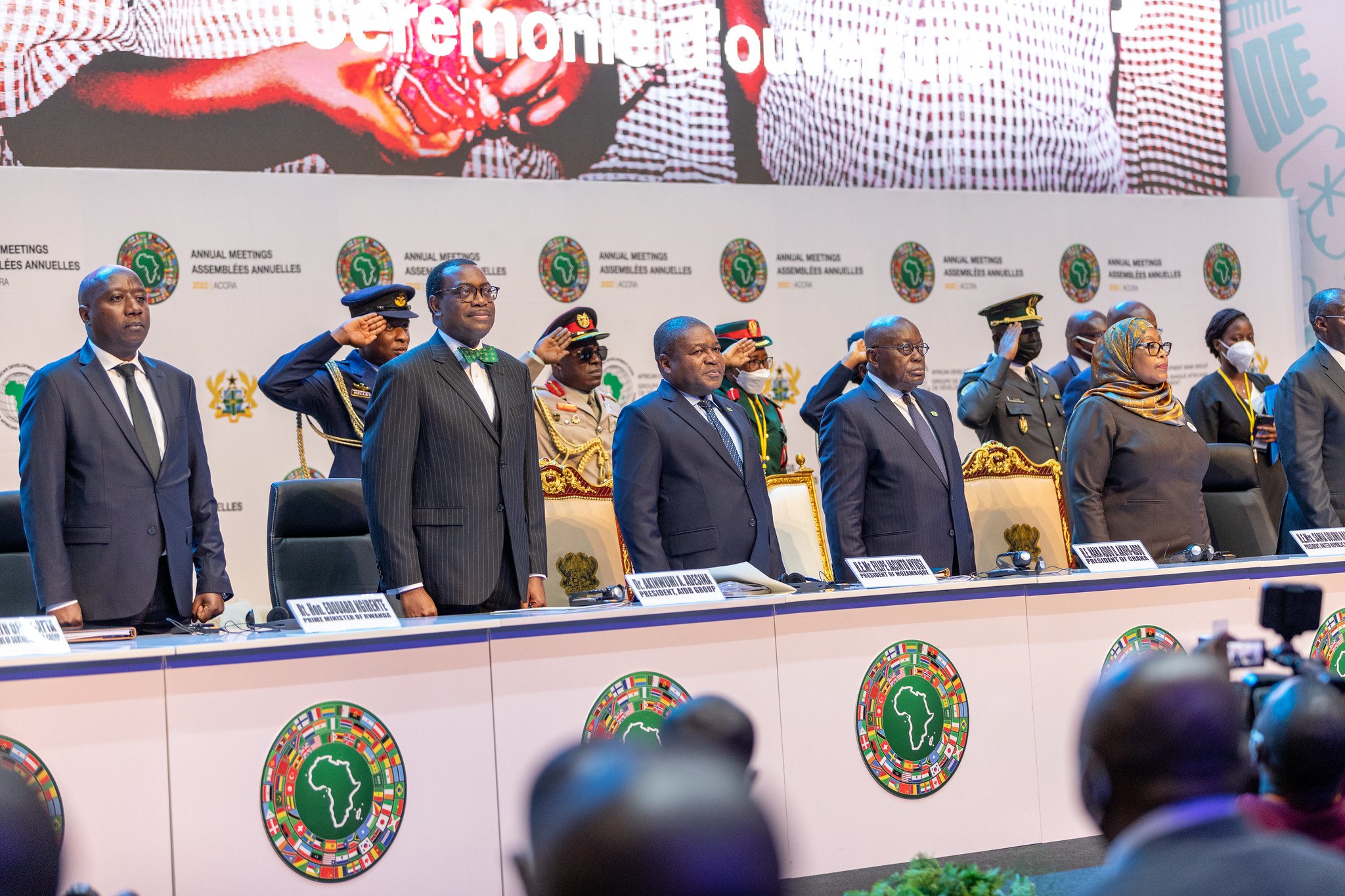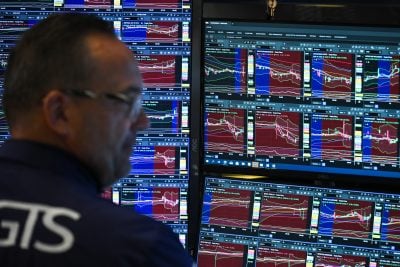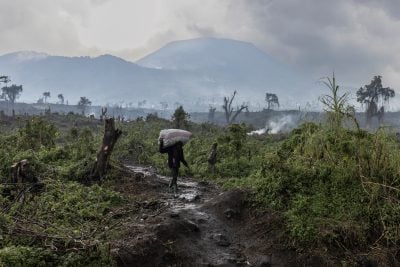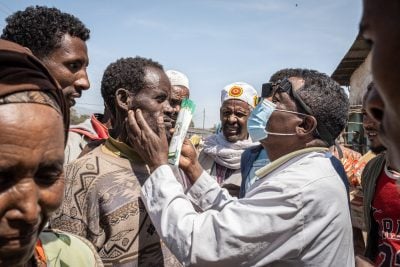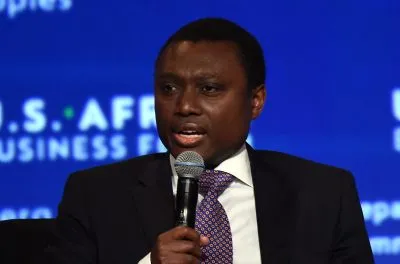The 2022 African Development Bank’s (AfDB) Annual Meetings in Accra may well be remembered as the week that Africa’s patience ran out.
As the first in-person event after two years of Covid, it could not help but be suffused with the brutal health and economic inequalities catalysed by the panicked stockpiling of treatments, vaccines and other supplies by rich countries. With just 20% of Ghanaians having received at least two vaccine doses – paltry by the standards of most Western countries, but still higher than the figure for Africa as a whole – masks, daily testing and sanitisation were mandatory.
But now, perhaps louder than ever before, these inequalities are being called out by those who suffer the most. At the 2022 meetings these issues were front and centre, not only Covid-19 vaccines and impacts, but also climate change, finance, investment, food security and migration – all areas where African leaders and institutions feel that the global rules of the game are tilted against them.

We need an economic model that serves African interests
AfDB president Akinwumi Adesina set the tone early on. In the very first press conference of the week, held before the programme had even formally begun, he bemoaned the failure of the developed world to provide the $100bn a year in climate finance they pledged to developing countries over 10 years ago. Echoing the late UN secretary-general Kofi Annan, he said that the “only promises that matter are the promises that are kept”. To date, Africa is yet to receive more than $18bn in climate finance per year, and lays claim to just 3% of all global climate finance flows.
President Nana Akufo-Addo of Ghana, went further. “The time has come to move toward an economic model which serves our interests, not others,” he said in a blistering address to the opening ceremony.
He took particular aim at the “unjustness” of international finance, claiming that “there is no basis for our economies being saddled with a so-called ‘Africa risk premium’” – the practice of international investors and financiers of charging interest, or demanding a return, that far exceeds the actual risk profile of their African undertakings.
“Profits from our resources have benefited foreign creditors for too long,” he continued, “while we suffer abusive borrowing costs on international markets.”
These resources, he reminded attendees, “were the catalysts for the economic advancement of Western nations.”

Ending dependence on Western largesse
The exact shape of this new economic model remains to be seen, but as the week rolled on and commitments piled up, it became clear that Africa – in efforts largely spearheaded by the AfDB and its concessional lending arm, the African Development Fund (ADF) – is looking to build back from consecutive economic shocks in a way that secures its independence from Western largesse.
“Africa must feed itself with pride” said Adesina in announcing the $1.5bn Emergency Food Production Facility, which, spurred by the exposure of African nations to the elevated food and fertiliser prices resulting from Russia’s invasion of Ukraine, aims to transform Africa from food importer to exporter in just a few years.
So too with energy, with the recent discovery of extensive gas reserves in Angola, Morocco, Algeria, Ghana and a host of other nations prompting anticipation of both greater energy security and new, lucrative export opportunities.
Where critics pointed out the apparent incompatibility between hugely expanded gas production on one hand, and the AfDB’s formal endorsement of the net-zero target by 2050 emissions target on the other, they were quickly hosed down with the rhetoric of historical responsibility that so dominated the week’s proceedings.
“It is not the gas that is the issue, it is the pollution,” said President Filipe Nyusi of Mozambique, whose country’s 10 trillion cubic feet of proved natural gas reserves establishes it as one of the prime beneficiaries of Africa’s gas ambitions. “[And] who is polluting the world? My country does not even pollute 2%, but it is a victim of those who pollute [in the past]. Africa has to be given a chance to emerge, because if we don’t give it a chance when others already have, we will be blocking development.”
Establishing greater financial sovereignty for Africa
Ending the inequity of special drawing rights
Critical as it is, greater domestic commodity production is only one pillar of Africa’s push for greater self-reliance.
The Accra Declaration – the formal communiqué issued at the conclusion of the Annual Meetings, which catalogues the AfDB’s achievements, decisions and priorities on behalf of its shareholders and member countries – contains two key financial commitments that, if fulfilled, would dramatically change the way that capital is sourced and allocated on the continent.
The first has to do with Special Drawing Rights (SDRs); financial instruments issued by the IMF to funnel extra quantities of foreign exchange to member countries at times of economic stress. During the Covid-19 pandemic the IMF released $650bn worth of them. But because they are allocated according to countries’ respective shares in the fund – “inversely to needs” in the words of Hassatou Diop N’Sele, AfDB vice-president for finance – the 54 African countries received just $3bn. The G7, by contrast, received $277bn.
The inequity of this arrangement seemed obvious to many during the week, with representatives from more-developed countries repeatedly urged to transfer their SDRs to the AfDB for allocation to African countries. And while both the UK and France appear poised to pull through – the UK’s Minister for Africa, Latin America and the Caribbean Vicky Ford told the assembly that “the UK would like to channel some of our SDRs to Africa,” while President Macron of France is in advanced discussions regarding the release of some $100bn worth – the Accra Declaration makes clear just how impactful the large-scale allocation of these instruments to an African institution would be to righting the “unjust laws of international finance” so passionately disavowed by the Ghanaian president.
Leveraging the African Development Fund
While SDRs – though innovative – still fall within the Bretton Woods framework, the second hoped-for pillar of African financial sovereignty is almost entirely independent from it. It leverages the ADF; specifically, its ability to independently raise capital on global markets. Such actions have been forbidden since the Fund’s inception, but the Accra Declaration suggests that this caution is no longer justified, and calls for the limiting regulations to be urgently revised.
Having built up equity of $25bn over its 50 years of activity, the ADF could feasibly issue bonds and other instruments to investors, expanding its lending capacity by as much as $10bn with little to no reliance on the established development finance architecture.
This, in turn, could be routed to African countries at rates far below those available from Paris Club lenders, as well as the bilateral private creditors who now hold half of all African debt.
Ken Ofori-Atta, the Ghanaian finance minister and outgoing chairman of the AfDB, was frank – for finance,“there is no way we can continue to rely on development partners.”
If these two initiatives are fulfilled as intended, a new era of home-grown, African-controlled and African-directed development finance may be about to begin.
An ambitious agenda
Food, gas and local capital seem to be just the beginning. From support for Africa’s budding pharmaceutical industry, to the Desert to Power initiative that claims to be turning the Sahel into one of the largest solar-power-generation areas on earth, to the establishment of Youth Entrepreneurship Investment Banks to stem the flows of young people from the continent, and massive infrastructure investment intended to unleash intra-African trade under the African Continental Free Trade Agreement (AfCFTA), the programmes announced and promoted at the 2022 Annual Meetings reveal an AfDB bent on both publicising and addressing the global inequities that have shackled African development for generations.
President Adesina wants the Bank to be the “dominant financial institution for Africa”, and while not advocating for outright decoupling – leaders were upfront about their countries’ incapacity to pay for an ambitious development agenda on their own – it is clear that bearing the brunt of successive exogenous shocks has brought Africa’s willingness to trust the rich world’s altruism to record lows.
Whether the AfDB can actually pull this agenda off is another matter entirely. There are, after all, suggestions that hidden beneath Adesina’s bow tie, swagger and winning smile lie chronically weak governance. Just days before the meetings commenced, reports broke of threats made to independent evaluators auditing the Bank, drawing a furious opening-day defence from the president who called them “horrible, tabloid, baseless stories… orchestrated misinformation.”
Moreover, the continent faces severe headwinds that no amount of fiery rhetoric can dispel. Higher interest rates combined with the extreme indebtedness of many African countries presents a toxic cocktail of financial stress, while stubborn levels of poverty, insecurity, informality and political frailty – a large proportion of the ADF’s business is in fragile or post-conflict states – will requires decades of patient institutional work to combat.
Having loudly expressed that it is sick of being buffeted by indifferent global forces, and laid out the beginnings of a strategy to blunt them, Africa’s attention now turns to implementation. With the AfDB having assumed the mantle of delivering the continent’s future, it must take practical steps to deliver development that is sustainable, emancipatory and above all inclusive of the most vulnerable in society. To succeed could mean outright transformation. But to fail would be yet another broken promise.
Want to continue reading? Subscribe today.
You've read all your free articles for this month! Subscribe now to enjoy full access to our content.
Digital Monthly
£8.00 / month
Receive full unlimited access to our articles, opinions, podcasts and more.
Digital Yearly
£70.00 / year
Our best value offer - save £26 and gain access to all of our digital content for an entire year!
 Sign in with Google
Sign in with Google 